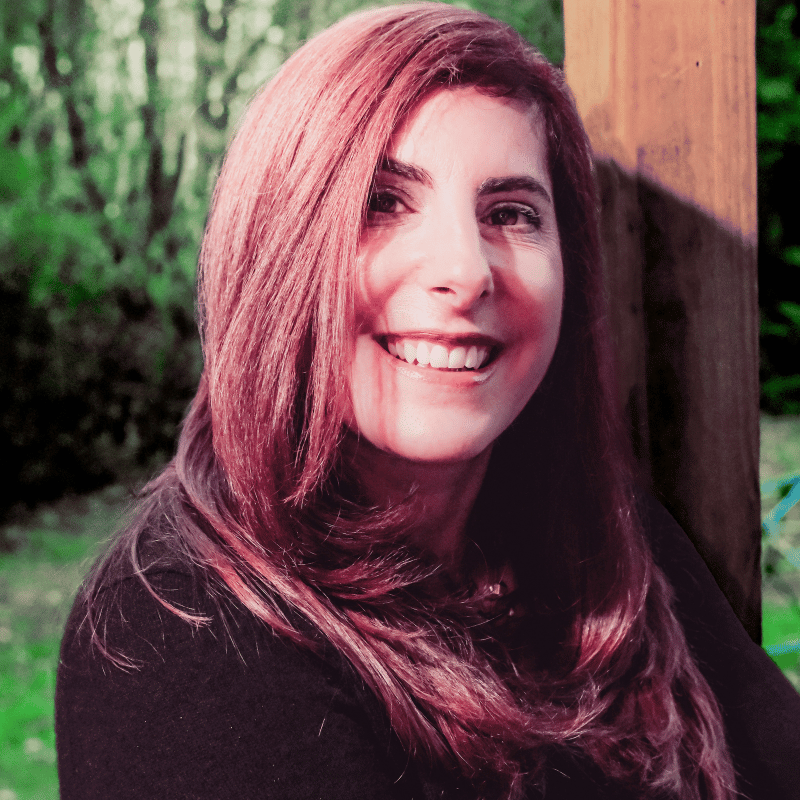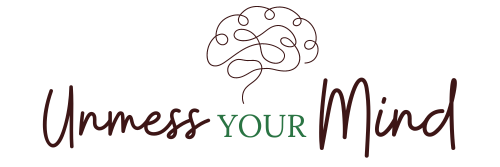
...So that change becomes easy
I have almost 20 years of experience working with individuals and couples who are struggling with repetitive patterns and who are stuck in old stories. My work with clients helps them break free from these old patterns to build the life they want while uncovering the person they want to be.
I deeply believe that without learning about our histories (why we do what we do), we can learn all of the new tools we want but we’ll stay stuck in old patterns. When we learn about our histories, our minds can finally adopt the new tools and behaviors we’ve been reaching for. Instead of living in old or automatic frameworks, my work with clients helps them unearth new truths about who they really are and want to be in the world.
My therapeutic framework is informed by the training I have done in the STAIR Method, Relational Life Therapy, Tracking Neural Networks, and IFS/Parts Work. You can read more about my specific therapeutic approach and training by scrolling up/down on this page for the “How I Work” section. I am consistently nurturing myself as an individual and professional with continued education and training – I’m currently engaged in two different consultation groups a month to hone my skills. I am always learning, so my therapeutic framework continuously evolves as time moves forward. I like to joke that if you take a break from therapy with me for six months or more, you will likely come back to what feels like a new therapist due to my professional growth and shifts.
It seems that most therapists either sit back and listen without offering input, OR they give you advice and tell you what you should do. What makes my approach unique is that I am a weird mix of those two approaches: I will offer input (sometimes based on brain science, sometimes not) while not telling you what you should do. Through our conversations, my clients find their own answers within themselves. And they are typically shocked when they do. My commitment to continuing to unlock new opportunities within myself, both personally and professionally, guides my work with clients which is grounded in enthusiasm and compassion.
I know what it’s like to look deeply within, to take responsibility, and to discover new ways of being. And I know how much that can transform your life, because it’s transformed mine. I can help you do that too. If you are ready to take responsibility where you can to make the changes you want, let’s connect!
Vickey Easa
MSW, LICSW
My Certifications, Licensure & Degrees
- STAIR Trained, 2024
- Certified RLT Bootcamp Facilitator, 2020
- Certified Relational Life Therapist (RLT), 2018
- Massachusetts Licensed Independent Clinical Social Worker #115004, 2009
- Masters in Social Work, CalState Long Beach, 2002
- Bachelors of Arts in Psychology, Pepperdine University, 1996



...So that change becomes easy
I have almost 20 years of experience working with individuals and couples who are struggling with repetitive patterns and who are stuck in old stories. My work with clients helps them break free from these old patterns to build the life they want while uncovering the person they want to be.
I deeply believe that without learning about our histories (why we do what we do), we can learn all of the new tools we want but we’ll stay stuck in old patterns. When we learn about our histories, our minds can finally adopt the new tools and behaviors we’ve been reaching for. Instead of living in old or automatic frameworks, my work with clients helps them unearth new truths about who they really are and want to be in the world.
My therapeutic framework is informed by the training I have done in the STAIR Method, Relational Life Therapy, Tracking Neural Networks, and IFS/Parts Work. You can read more about my specific therapeutic approach and training by scrolling up/down on this page for the “How I Work” section. I am consistently nurturing myself as an individual and professional with continued education and training – I’m currently engaged in two different consultation groups a month to hone my skills. I am always learning, so my therapeutic framework continuously evolves as time moves forward. I like to joke that if you take a break from therapy with me for six months or more, you will likely come back to what feels like a new therapist due to my professional growth and shifts.
It seems that most therapists either sit back and listen without offering input, OR they give you advice and tell you what you should do. What makes my approach unique is that I am a weird mix of those two approaches: I will offer input (sometimes based on brain science, sometimes not) while not telling you what you should do. Through our conversations, my clients find their own answers within themselves. And they are typically shocked when they do. My commitment to continuing to unlock new opportunities within myself, both personally and professionally, guides my work with clients which is grounded in enthusiasm and compassion.
I know what it’s like to look deeply within, to take responsibility, and to discover new ways of being. And I know how much that can transform your life, because it’s transformed mine. I can help you do that too. If you are ready to take responsibility where you can to make the changes you want, let’s connect!
Vickey Easa
MSW, LICSW
My Certifications, Licensure & Degrees
- STAIR Trained, 2024
- Certified RLT Bootcamp Facilitator, 2020
- Certified Relational Life Therapist (RLT), 2018
- Massachusetts Licensed Independent Clinical Social Worker #115004, 2009
- Masters in Social Work, CalState Long Beach, 2002
- Bachelors of Arts in Psychology, Pepperdine University, 1996




STAIR
Self Trust and Integrated Resilience
At the core, the goal is to assist my clients build “self trust.” What does that mean? When things get hard, can I trust myself to get through? I believe this model is more about me as the therapist than a way of being for my clients. RLT (see below) is about helping my clients “live relationally” and my training was /is on ways to help my clients make changes. STAIR is how I am organizing the session. What questions can I ask, what exercises/experiments/interventions can I offer in this moment, that will work best with the clients’ brain chemistry to promote the change they are asking me for?
This modality was developed by Juliane Taylor Shore and is based in the science of Interpersonal Neurobiology (IPNB). I’m engaged in ongoing training & mentorship under Jules (not to mention friendship).
If you don’t already recognize Jules’ name, it’s because you haven’t listened to our podcast (which we co-host along with Rebecca Wong). Check it out here.
STAIR
Self Trust and Integrated Resilience
At the core, the goal is to assist my clients build “self trust.” What does that mean? When things get hard, can I trust myself to get through? I believe this model is more about me as the therapist than a way of being for my clients. RLT (see below) is about helping my clients “live relationally” and my training was /is on ways to help my clients make changes. STAIR is how I am organizing the session. What questions can I ask, what exercises/experiments/interventions can I offer in this moment, that will work best with the clients’ brain chemistry to promote the change they are asking me for?
This modality was developed by Juliane Taylor Shore and is based in the science of Interpersonal Neurobiology (IPNB). I’m engaged in ongoing training & mentorship under Jules (not to mention friendship).
If you don’t already recognize Jules’ name, it’s because you haven’t listened to our podcast (which we co-host along with Rebecca Wong).
RLT
Relational Life Therapy
Relational Life Therapy is a skills-based approach to couples therapy. It helps couples shake up the power dynamic in their relationship (that they may or may not realize they are in), which changes the pattern they keep repeating when things get hard. At its core, this modality strives to help people make powerful insights, sustain lasting change, and integrate healthy new relational skills moment by moment in daily life.
I am a certified Relational Life Therapist and am engaged in weekly RLT coaching calls. I trained to be a Bootcamp Facilitator and am no longer offering RLT Bootcamps. Jules, Rebecca, and I now offer our own Relationship Workshops, you can find that information here.
RLT
Relational Life Therapy
Relational Life Therapy is a skills-based approach to couples therapy. It helps couples shake up the power dynamic in their relationship (that they may or may not realize they are in), which changes the pattern they keep repeating when things get hard. At its core, this modality strives to help people make powerful insights, sustain lasting change, and integrate healthy new relational skills moment by moment in daily life.
I am a certified Relational Life Therapist and am engaged in weekly RLT coaching calls. I trained to be a Bootcamp Facilitator and am no longer offering RLT Bootcamps. Jules, Rebecca, and I now offer our own Relationship Workshops, you can find that information here.
Tracking Neural Networks
This is a unique way to tap into information buried in our subconscious.
The Limbic System of the brain stores the painful memories of your past. It knows how you were hurt so it predicts how you will be hurt again. The Basal Ganglia knows how you were hurt and what you should do about that now. These two systems in the brain speak through specific parts of your body. With specific and targeted questions, we can tap into these two subconscious systems to help you get to know yourself on a deeper level than you are accustomed to.
Tracking Neural Networks
This is a unique way to tap into information buried in our subconscious.
The Limbic System of the brain stores the painful memories of your past. It knows how you were hurt so it predicts how you will be hurt again. The Basal Ganglia knows how you were hurt and what you should do about that now. These two systems in the brain speak through specific parts of your body. With specific and targeted questions, we can tap into these two subconscious systems to help you get to know yourself on a deeper level than you are accustomed to.
IFS/Parts Work
Internal Family Systems
I am not fully certified in this therapeutic model, nor do I use the specific terminology of it. I do, however, recognize the biology that we all have different Parts within us. Picture this: have you ever had two different perspectives on something? Part of you felt one way and Part of you felt another? That’s what I am referring to when I say “Parts within us.” I use both metaphor and some neurobiology to help my clients tune into these parts and learn from them.
IFS/Parts Work
Internal Family Systems
I am not fully certified in this therapeutic model, nor do I use the specific terminology of it. I do, however, recognize the biology that we all have different Parts within us. Picture this: have you ever had two different perspectives on something? Part of you felt one way and Part of you felt another? That’s what I am referring to when I say “Parts within us.” I use both metaphor and some neurobiology to help my clients tune into these parts and learn from them.
